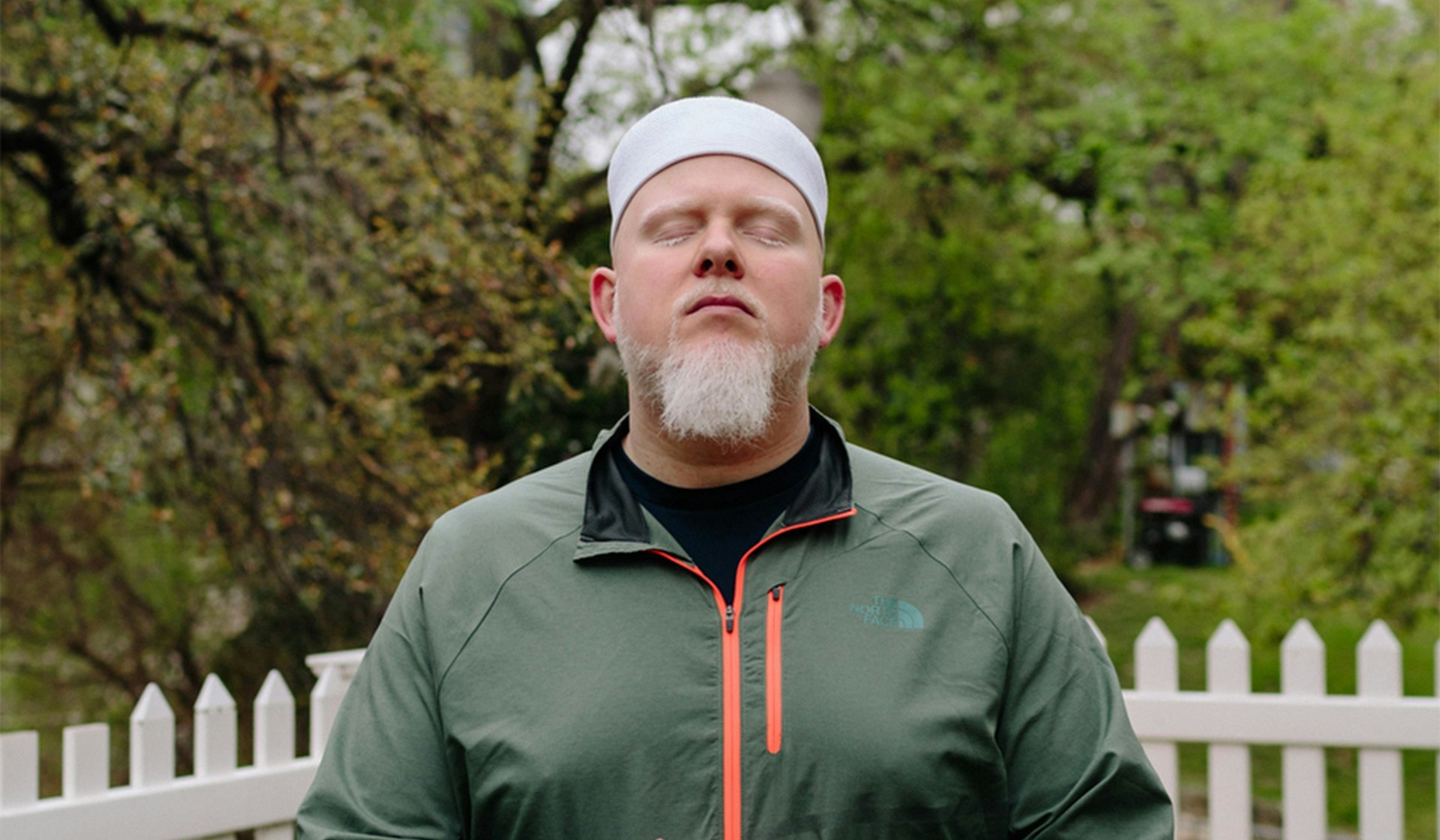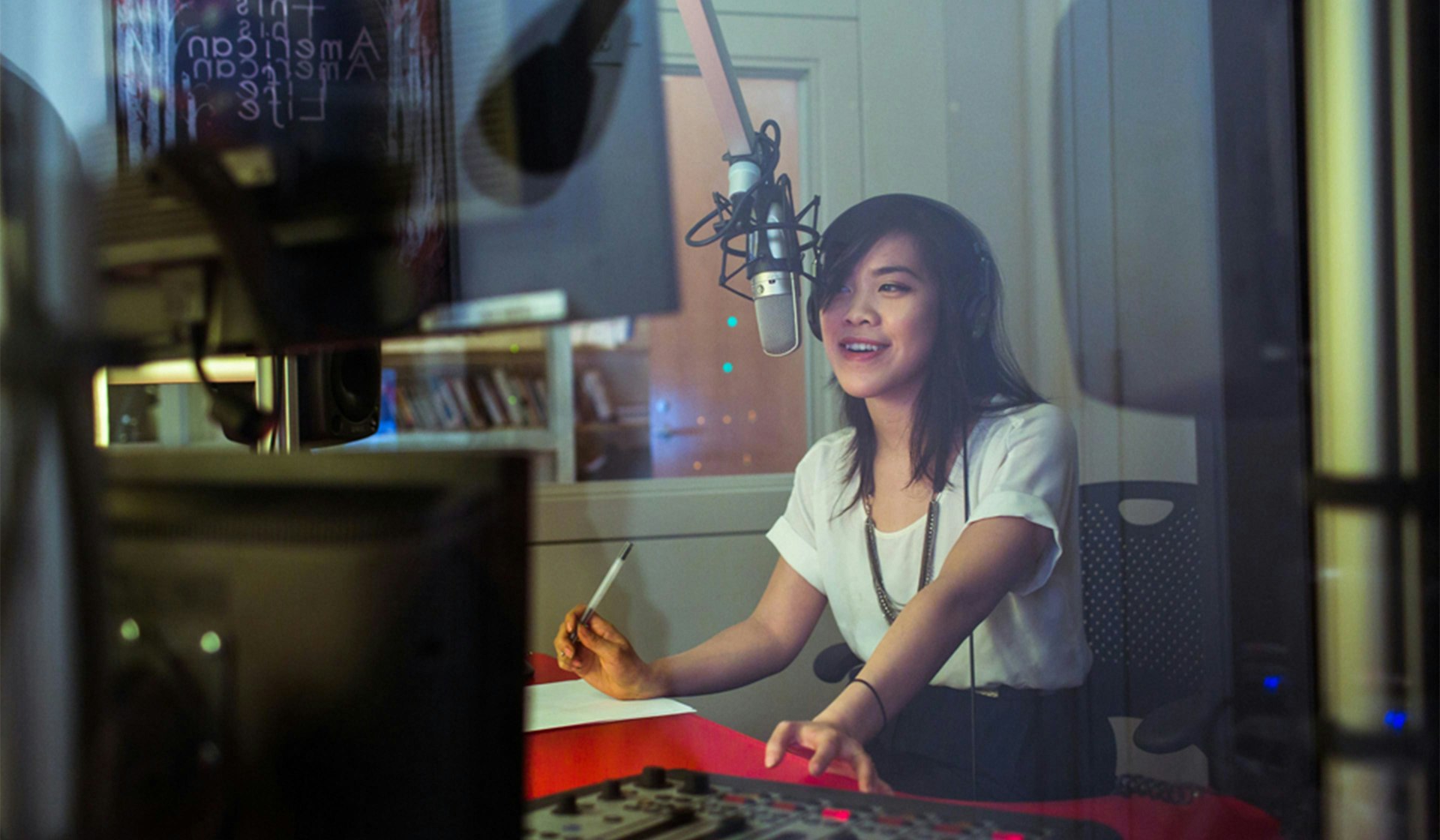
Brother Ali: The Muslim covert albino rapper
- Text by Huck HQ / Adam Woodward
- Photography by Jason Henry
#29 – Brother Ali
Imagine being a Muslim living in a twenty-first century America divided across the fault lines of religious fanaticism. Now imagine being a white albino Muslim convert plying your trade within a traditionally black cultural movement. It’s this unique perspective that lends Brother Ali his distinctive voice, which right now is among the most honest and vital across the hip hop landscape. On record he breaks down racial and political barriers. On stage his indignation flows with furious intent. In the flesh, he exudes a refreshingly non-combative, peaceful aura. There’s something innately hopeful about his music, too, a rare wisdom in his words. Ali converted to Islam at age fifteen, and it’s the all-pervading influence of his faith that dominates our brief conversation.
“Ever since I was a little kid, I’ve always been into hip hop. I started B-boying when I was about seven years old. Eventually, that led to me falling in love with the words. In the late ’80s hip hop underwent a big change lyrically, it got a lot more complex and detailed and it also became a lot more political. It really became clear to me at that time that it was a movement for people to be transformed in terms of the way we see ourselves and what we understand ourselves to be. It started out with me just wanting to dance a certain way, dress a certain way, party a certain way, and then in the late ’80s something changed and it made me want to be more powerful, a representative of justice.
“When I was thirteen, in 1991, I went to see KRS-One give a lecture and he brought me on stage and asked me questions. More recently, Public Enemy ended up being on one of my albums; I’m on one of theirs. We’ve done a lot of shows together and for me it’s really become a mentorship relationship, especially with Chuck D. The other was Rakim, who I ended up touring with for a year straight around 2007-8. I’m fortunate that a lot of my heroes embraced me and gave me a chance, and it’s a big part of why I’ve always felt more accepted by the black community. But KRS-One was actually the one who told me I should read Malcolm X. He assigned the autobiography of Malcolm X to me; I read it, and that’s what led to me becoming a Muslim.
“I really believe that when we feel a connection to somebody, if we’re diligent about it and if that connection is real, then the creator will bring us together. It all has to do with how well one knows oneself. We have to be very self-aware and know when we’re being sincere and when our sincerity is being compromised or put into question. ‘What’s the difference between me genuinely feeling a connection to this person and me wanting something from them, or wanting to soak up some of their fame or power or influence? Do I want to connect with them or do I want to pick their pockets?’ There’s a big difference.”
This is just a short excerpt from Huck’s Fiftieth Special, a collection of fifty personal stories from fifty inspiring lives.
Grab a copy now to read all fifty stories in full. Subscribe to make sure you don’t miss another issue.
